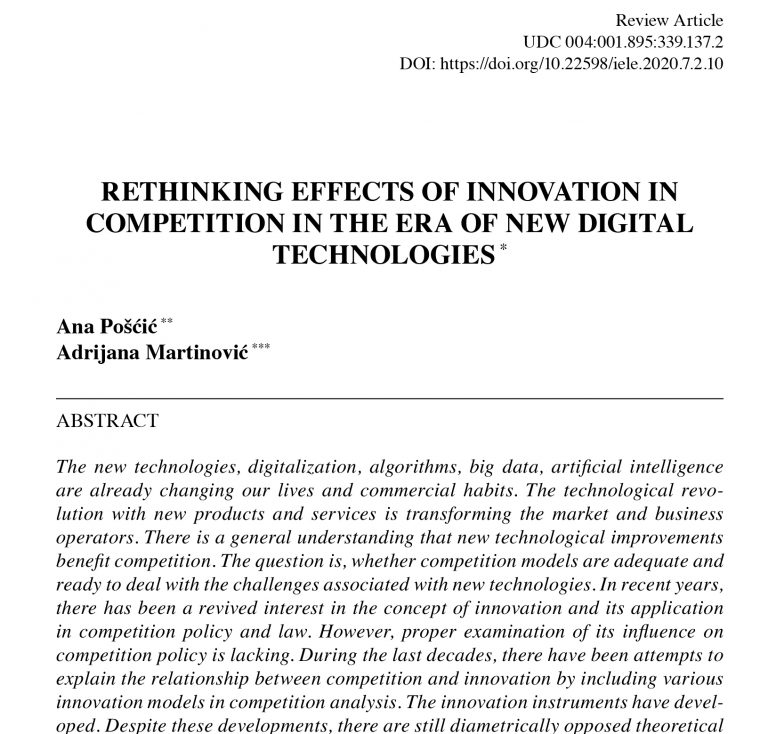
The new technologies, digitalization, algorithms, big data, artificial intelligence are already changing our lives and commercial habits. The technological revolution with new products and services is transforming the market and business operators. There is a general understanding that new technological improvements benefit competition. The question is, whether competition models are adequate and ready to deal with the challenges associated with new technologies. In recent years, there has been a revived interest in the concept of innovation and its application in competition policy and law. However, proper examination of its influence on competition policy is lacking. During the last decades, there have been attempts to explain the relationship between competition and innovation by including various innovation models in competition analysis. The innovation instruments have developed. Despite these developments, there are still diametrically opposed theoretical approaches, from completely ignoring the concept of innovation in competition law to the ones that develop a specific economic test in competition analysis. This paper will try to analyze and compare different approaches to the intersection of competition and innovation. Systematic theories that assess innovation in the context of competition are scarce. Competition authorities have been focused on issues of consumer and social welfare, rather than on the impact of innovation on the competition.